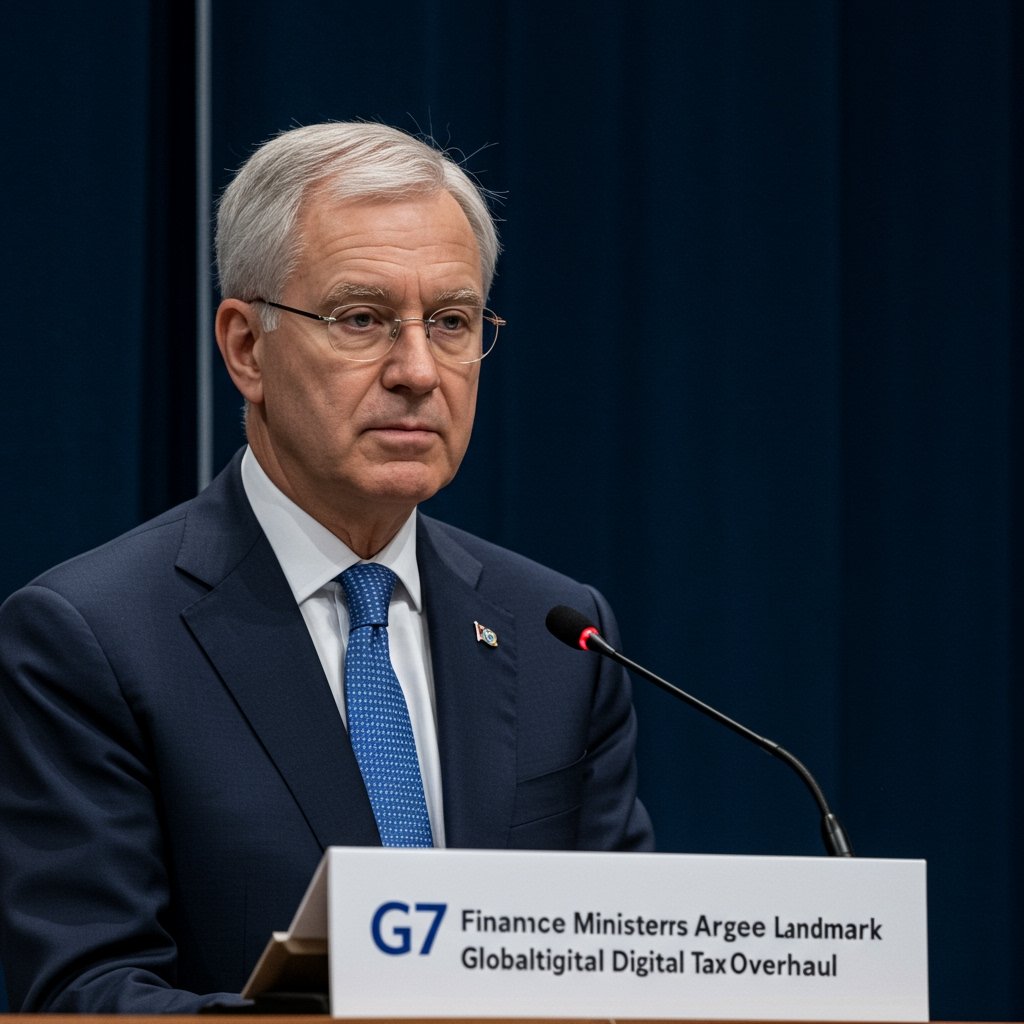G7 Finance Ministers Forge Agreement on Comprehensive Global Digital Taxation Framework
Finance Ministers from the Group of Seven (G7) major economies concluded a crucial two-day meeting in Berlin on June 5th, achieving a significant breakthrough in their efforts to modernize the international tax system. The gathering culminated in a consensus agreement on key principles aimed at overhauling the global tax framework, with a particular focus on addressing the complexities of taxing multinational corporations operating in the digital age. The agreement represents a pivotal moment in the years-long international drive to ensure large, profitable companies pay a fairer share of tax in the countries where they conduct business and generate profits, regardless of their physical presence.
The rapid expansion of the digital economy has exposed significant vulnerabilities in the traditional international tax rules, which were largely designed for a brick-and-mortar world. Many multinational corporations, particularly those in tech and e-commerce sectors, have been able to shift profits to low-tax jurisdictions, leading to concerns about tax avoidance and creating an uneven playing field for smaller, domestic businesses. Governments worldwide have been under increasing pressure to update these rules to reflect the reality of a globalized and digitalized economy, where value creation often occurs remotely from where profits are ultimately booked.
The consensus reached by the G7 finance leaders directly confronts these challenges by proposing two primary pillars for the new international tax architecture. The first key element is the establishment of a global minimum effective corporate tax rate. While the precise rate was subject to ongoing discussion at broader international forums, the G7’s endorsement of the principle signals strong political will to halt the “race to the bottom” in corporate taxation among nations competing to attract investment. This minimum rate is intended to discourage companies from exploiting differences in national tax rates by moving their headquarters or profits to low-tax havens.
The second crucial component of the agreement addresses the allocation of taxing rights. Under the proposed rules, a portion of the profits of the largest and most profitable multinational enterprises would be reallocated to the countries where their consumers or users are located, irrespective of physical presence. This principle, often referred to as Pillar One in broader international negotiations, aims to ensure that market jurisdictions have a greater right to tax profits generated from economic activities within their borders. The G7’s agreement provides a strong political impetus for advancing this complex mechanism, which requires establishing objective criteria for identifying affected companies and determining the share of profit to be reallocated.
U.S. Treasury Secretary Janet Yellen hailed the agreement as a “major step toward a fairer tax system.” Speaking after the meeting, she emphasized the significance of this collective action in addressing the challenges posed by the globalized economy. Secretary Yellen urged swift implementation of the framework across member states, highlighting the potential for increased government revenues and a more equitable distribution of the tax burden. Her remarks underscored the commitment of the United States, a key player in these international negotiations, to securing a multilateral solution rather than pursuing unilateral digital services taxes.
German Finance Minister Christian Lindner also welcomed the agreement, emphasizing the necessity of continued cooperation among nations to translate the agreed-upon principles into a detailed, legally binding international treaty. Minister Lindner highlighted the ambition to finalize these complex treaty details by the end of the year, setting an optimistic timeline for the next phase of negotiations. He stressed that achieving consensus within the G7 provides essential momentum for the broader discussions that will be necessary to implement the framework globally.
This development within the G7 is particularly significant as it sets the stage for broader and more inclusive discussions within larger international bodies, specifically the G20 (Group of Twenty) and the Organisation for Economic Co-operation and Development (OECD). The G20, which includes major emerging economies alongside the G7 nations, is the primary forum where a global consensus beyond the G7 needs to be forged to ensure widespread adoption and effectiveness of the new rules. The OECD has been instrumental in hosting the technical negotiations among over 130 countries under its Inclusive Framework on Base Erosion and Profit Shifting (BEPS). The G7’s political backing provides a critical push for these ongoing multilateral efforts.
The path forward involves turning the high-level principles agreed upon by the G7 ministers into concrete legal and administrative frameworks that can be implemented worldwide. This will require navigating complex technical details, resolving potential disagreements among a larger group of countries within the G20 and OECD, and ultimately securing legislative approval in numerous national parliaments. The successful conclusion of the G7 meeting in Berlin on June 5th marks a crucial milestone, transforming years of discussion into a tangible plan backed by the world’s leading economies, laying the groundwork for a potentially transformative shift in how global corporations are taxed.





